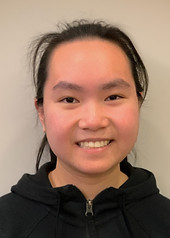
The Merrick Lab

Institute for Diabetes, Obesity, and Metabolism
The
Merrick Lab

Current Lab Personnel

David M Merrick, MD, PhD
Principal Investigator
Assistant Professor of Medicine
Department: Medicine
Clinical Expertise: Medical Management of Obesity
Graduate Group Affiliations: Cell and Molecular Biology (CAMB); Cell Physiology, Biology, and Metabolism (CPM)
Bio: David Merrick, MD/PhD completed undergraduate studies at the Johns Hopkins University, then earned his MD and PhD at Yale University in the laboratory of Dr. Michael Caplan. During his graduate training he studied the molecular dynamics of PKD1, the protein mutated in Autosomal Dominant Polycystic Kidney Disease (ADPKD). Targeted capture of the cleaved intracellular signaling domain of this large ciliary membrane protein revealed that it translocated to the nucleus and regulated the activity of the Wnt and CHOP signaling pathways via interactions with a transcriptional co-activator p300. As part of this work, he developed a 3D-organoid culturing system that facilitates the in vitro manipulation of kidney cysts, as well as adapting a zebrafish model of ADPKD to study the in vivo role the PDK1 signaling domain. Subsequent investigations revealed an interaction between PKD1 and TAZ1 to regulate skeletogenesis.
Following his PhD studies, Dr. Merrick completed a residency in internal medicine and a clinical fellowship in endocrinology at the University of Pennsylvania before joining the laboratory of Dr. Patrick Seale for postdoctoral study. In the Seale lab he utilized single-cell RNA-transcriptomics to uncover several novel subpopulations of mesenchymal progenitor cells and delineated the lineage relationships between these cells. Using CRISPR microinjection techniques he has developed numerous mouse models to facilitate in vivo lineage tracing of these novel populations to discover their role in adipose tissue development and fibrosis. He has authored publications in high-profile journals such as Science.
In 2019, Dr. Merrick, under the mentorship of Dr. Patrick Seale, was awarded a Career Development Award from the NIDDK to investigate the role of mesenchymal progenitor cells in adipose tissue health.
On July 1, 2020, Dr. Merrick was appointed as an Assistant Professor of Medicine in the Perelman School of Medicine, Division of Endocrinology at the University of Pennsylvania.

Sarah Traynor, BS
Lab Manager
Started at Penn: September 2020
Email: Sarah.Traynor@pennmedicine.upenn.edu
Bio: Sarah graduated from Rutgers University in 2015 with a degree in Biological Sciences. During her senior year, she interned at an Immunology laboratory and learned flow cytometry and FACS. After undergrad, Sarah worked in various roles involving animals, including positions at a dog daycare, a compounding pharmacy, an emergency veterinary hospital and Cooper Medical School. She joined the Merrick Lab in 2020 as the mouse colony manager and currently works on projects studying thermogenesis and adipocyte-macrophage interactions.
Outside the lab: When not in lab, Sarah enjoys pampering her senior pup Sadie with walks around town and to the local coffee shop. As a life-long New Jersey resident, Sarah is a Philly sports fan and a NAUI-certified SCUBA diver

Natalie Moore, BS, BA
PhD Candidate
Program: CAMB; CPM
Year: 4th
Email: Natalie.Moore@pennmedicine.upenn.edu
Bio: Natalie received her BA in Biology with a concentration in Cell Biology, Molecular Biology, and Genetics and her BS in Science Education from Boston University. As an undergraduate, her research focused on gene networks regulating skeletal muscle development and disease. After graduation, Natalie worked in biotech doing drug discovery for rare monogenic diseases. Now at Penn, Natalie’s project in the lab focuses on understanding the development and function of intramuscular adipose tissue including its origins from mesenchymal progenitor cells and its role in muscle regeneration.
Outside the lab: Outside of the lab, Natalie enjoys swimming, trying new coffee shops in Philly, hanging out in Rittenhouse Square, and long walks along the Schuylkill River Trail.

Carmen Gagliardi Flesher, BS, BM
PhD Candidate
Program: CAMB; CPM
Year: 4th
Email: Carmen.Flesher@Pennmedicine.upenn.edu
Bio: Carmen completed her undergraduate studies at the University of Michigan, where she earned a BS in Neuroscience and a BM in Violin Performance. While at UM, Carmen worked in the lab of Robert O'Rourke studying the pathogenesis of Type 2 diabetes in the context of obesity, with the goal of understanding how adipose tissue dysfunction leads to disease. It was in doing this work that Carmen found her passion for adipose biology and obesity research. Currently, Carmen's work focuses on the mechanics of adipose tissue and its role in the pathogenesis of obesity and the fate and development of adipose progenitor cells.
Outside the lab: Outside of the lab, Carmen enjoys playing music (violin and viola), attending the many wonderful concerts around Philly, enjoying the food scene of the city, and cooking.
Undergraduate Students
Cindy Lu
School: University of Pennsylvania
Year: Junior

Oscar Wang
School: University of Pennsylvania
Year: Junior

Previous Rotation Students and Lab Personnel
Patricia Guadalupe, Rotation student - CAMB/CPM
Shashwati Calcutta, Post-doc
Megan Stefkovich, Rotation student - CAMB/CPM
Ethan Fein, Rotation student - CAMB/Genetics & Epigenetics






